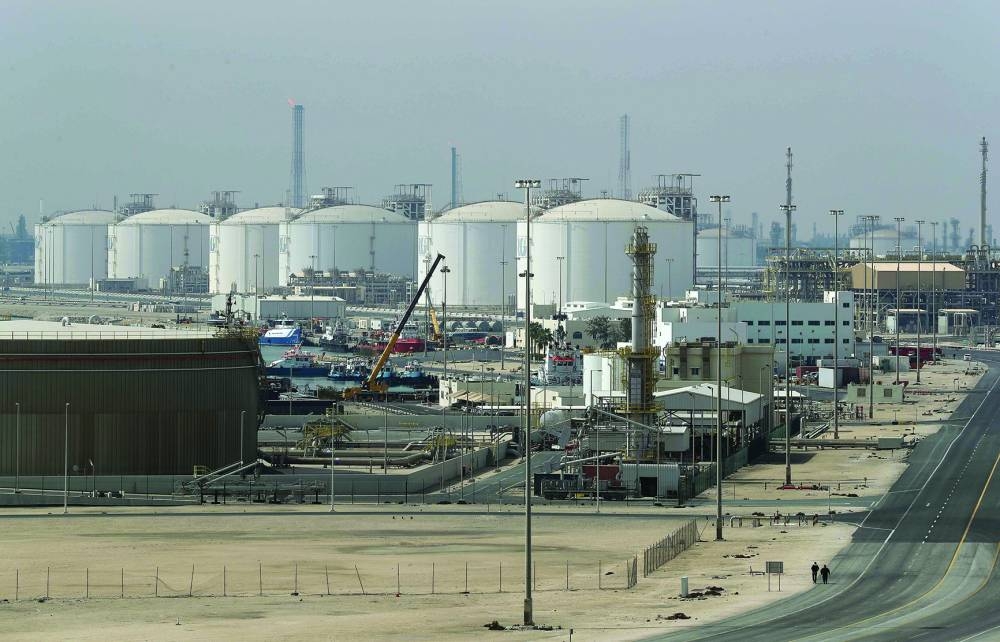Qatar's inflation-adjusted (real) economy is estimated to have grown 1% year-on-year during the second quarter (Q2), mainly on faster expansion in hydrocarbons, according to the official data.
The real gross domestic product (GDP) was up 0.5% on a quarterly basis during the review period as the mining sector growth masked the decline in non-hydrocarbons, according to the Planning and Statistics Authority data.
The mining and quarrying sector, under which hydrocarbons fall, is estimated to have grown 2.3% year-on-year and the non-mining and quarrying sector by 0.1%.
The agriculture, forestry and fishing sectors soared 4% on an annualised basis in Q2-2023, but was down 1.1% quarter-on-quarter.
On a quarterly basis, the real GDP (at constant prices) growth during Q2-2023 was mainly due to a 1.6% jump in the mining sector, even as non-mining and quarrying sector reported a marginal 0.1% decrease.
Within non-hydrocarbons, the accommodation and food service segment is estimated to have expanded 18% year-on-year in Q2-2023, followed by transport and storage by 5.6% and real estate by 4.2%.
Nevertheless, information and communication saw a 9.1% decline year-on-year, wholesale and retail trade 6%, finance and insurance 3%, construction 2%, manufacturing 1.5% and utilities 1% during the review period.
On a quarterly basis, the information and communication sector plummeted 19.6%, wholesale and retail trade (9.8%), accommodation and food service (5.5%), and transport and storage (4.2%) during Q2-2023.
However, the utilities sector reported a 16.8% surge, finance and insurance (4.4%), real estate (2.8%), manufacturing (1.7%) and construction (0.2%) during the review period.
On a nominal basis (at current prices), Qatar's GDP is estimated to have declined 13.7% and 5% year-on-year and quarter-on-quarter respectively at the end of Q2-2023.
The mining and non-mining sectors plummeted 25.5% and 3.9% on yearly basis respectively during Q2-2023.
On a quarterly basis, both mining and non-mining sectors witnessed 9.2% and 2.1% contraction, leading to a decline in nominal economy during Q2-2023.
Within non-hydrocarbons (in nominal terms), there was a 32.3% year-on-year plunge in manufacturing, 4.6% in wholesale and retail trade, and 0.5% in transport and storage during Q2-2023.
Nevertheless, the finance and insurance sector soared 21.4% on an annualised basis, real estate (12.2%), accommodation and food service (12.1%), utilities (9.9%), construction (1.5%) and information and communication (0.7%), during the review period.
On a quarterly basis in nominal terms, the accommodation and food services segment plunged 17.5%, manufacturing 11.1%, wholesale and retail trade (9.6%), information and communication (8.7%), finance and insurance (7.5%), and transport and storage (5%) during Q2-2023.
However, the utilities segment saw a 16% jump in nominal terms on a quarterly basis, 11.1% in construction, and 2.7% in real estate during Q2-2023.
The import duties, on real terms, are estimated to have risen 2.8% year-on-year but shrank 5.7% quarter-on-quarter at the end of Q2-2023.
On nominal terms, the import duties reported a 1.3% contraction year-on-year, whereas it shot up 5.9% on a quarterly basis during the review period.

The Ras Laffan Industrial City, Qatar's principal site for the production of liquefied natural gas and gas-to-liquids (file). Qatar's inflation-adjusted (real) economy is estimated to have grown 1% year-on-year during the second quarter (Q2), mainly on faster expansion in hydrocarbons, according to PSA data.

